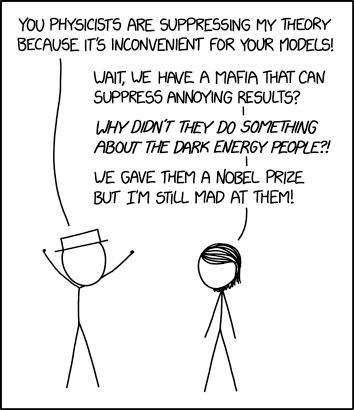>
This is the danger of much pseudo-philosophizing: If you don't define your terms carefully, all statements can be true or false depending on how you interpret them!
And giving an example is not a definition, it is at best something that can guide you to one
This is the danger of much pseudo-philosophizing: If you don't define your terms carefully, all statements can be true or false depending on how you interpret them!
And giving an example is not a definition, it is at best something that can guide you to one






